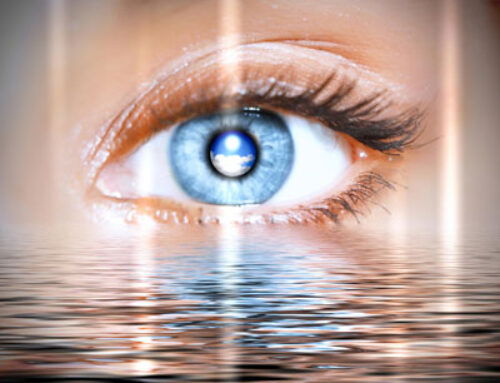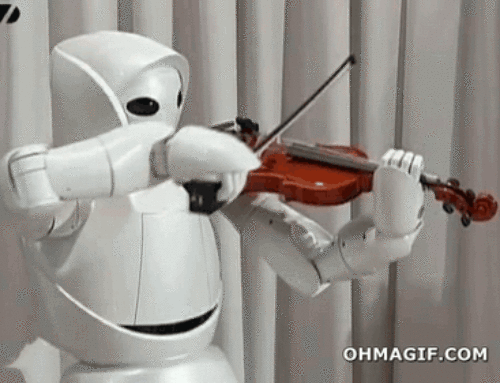In his classic The Sense of an Ending (2000), the literary critic Frank Kermode discussed the idea that scientists connect discrete observations as a form of “concord-fiction.” He used Heisenberg’s uncertainty principle – that electrons possess the mutually exclusive properties of waves and particles – as an example. How can we conceptualize an electron as spread out – a wave – and as discrete – a particle – at the same time? Being both everywhere and at a particular location simultaneously falls outside of our frame of reference. Kermode points out that scientists resolve such discordant facts by “concord-fiction” – the creation of narratives for concordance striving for coherence. Thus, one of the most challenging aspects of basic research, which also extends to writing, is to identify where narratives wander, and then look deeper to establish a more believable story.
Literary criticism and scientific skepticism both lean on internal consistency and some connection, even if tenuous as in science fiction or fantasy, with previous experience to succeed.
My novel, Jellyfish Have Eyes, a work of fiction, explores the narrative limits of science. The story is set in the mid-twenty-first century to allow space for speculation by the protagonist, Ricardo Sztein, a 70-year-old government scientist. Ricardo made reasonable deductions from his experiments in line with what was known at the time. For example, he concluded that jellyfish saw images (jellyfish really do have eyes, noted already in the nineteenth century), which is consistent with optical studies today that jellyfish can potentially see blurred images. However, Ricardo also speculated from his experimental data – the “facts” upon which he based his novel ideas – that jellyfish stored visual images of evolution. Ricardo knew that this idea crossed the boundary of accepted scientific interpretation, but he believed that not knowing how jellyfish might accomplish this trick did not make his suggestion false, only that more research was required to confirm and understand how they stored the images of evolution.
Remember, Jellyfish Have Eyes is a novel, not a barrel of established facts. My point was to consider the role of speculation in scientific narratives, which, in theory, has the long-term potential to lead to significant advances in knowledge. Jonah Lehrer points out in a series of remarkable essays, Proust is a Neuroscientist, how artists – painters, composers, chefs, poets – have preceded ideas that many years later are explained by neuroscience. Stanley Kubrick’s 1968 classic movie, 2001: A Space Odyssey, foreshadowed with amazing accuracy our present age of computers. Speculation often precedes advances in science; conversely, science can form a platform for literature, most notably science fiction. There is a reason that the cliché – to think “outside the box” – has merit. Stepping outside conventional limits – thinking outside the box – can lead to novelty in science and to the impact of non-scientific writing. Even writing in a non–conventional, creative style can be revolutionary. Think of other arts, painting for example. The same image can be expressed by realism or impressionism or abstraction. Each is a different form – style of expression – and novel. Content counts for only part of the story. James Joyce and Gabriel García Márquez are famous writers who have experimented successfully and innovated with style.
That unpredicted research observations are viewed skeptically is consistent with the conservative nature of science. However, I was surprised when critiques of my short stories included, “that couldn’t have happened,” or “that’s not believable,” or “that’s too coincidental,” even if the story was taken largely from events that did happen! Why would a fictional development not be accepted as part of a work of fiction?
Robert Bausch told me that, in his opinion, when a particular event happens in real life there’s a reason for it, even if that reason is not known at the time. A written story is not reality and, therefore, must “earn” what happens. A “hidden” reason for an event, or even for a thought, outside of the tale’s credibility to salvage a dilemma is difficult to accept, just like one cannot fabricate scientific data to satisfy scientific hypotheses. Literary criticism and scientific skepticism both lean on internal consistency and some connection, even if tenuous as in science fiction or fantasy, with previous experience to succeed.
Thus for a writer the elusive market, an external force, a tempting, powerful trap for ambitious souls, a false paradise for fools mining gold, glitters as a mirage. For a stranger in the literary world, like myself, comes the difficulty of attracting an audience. Don’t all creative efforts need a market?
In Jellyfish Have Eyes, Ricardo performed medically relevant research during his career because that was in demand and easily justified. In professional jargon, he hopped on the “bandwagon” and that resulted in awards and generous funding. But his true passion lay in basic investigations fueled by curiosity and adventure, not by a politically acceptable target. A recent widower watching sadly the sun set on his scientific career, Ricardo’s adventuresome spirit reinvigorated when he learned that jellyfish have eyes. That was novel! Who knew that jellyfish have eyes? I, similar to Ricardo, didn’t know that jellyfish had eyes until I read this astounding fact in a book on invertebrate vision well into my career of eye research. Ricardo escaped to the mangrove swamps of Puerto Rico to do research on these spineless, neglected wonders of biology, sidestepping his Institute’s mission of clinically related research, as did I many years ago. Thus, my novel was grounded in reality. But then Ricardo’s experience shifted when he received only trouble – condemnation – for his remarkable findings rather than the acclaim he craved, dashing his dreams.
Although I was given considerable academic freedom at the National Institutes of Health, for which I’m greatly thankful, I shared Ricardo’s conflict of preferring to cast light on dark shadows – jellyfish eyes for example – than to target my research to medicine, despite the climate and mission objectives favoring clinically oriented research. However, being a lucky, well-funded government scientist at the National Institutes of Health, I could direct my efforts entirely to research rather than to capture an audience. If the science was acceptable, professional journals published my articles, which was critical to establishing a career. But when I started writing fiction I realized how much easier it was to be a scientist, despite the years of training it took. Scientists follow templates: college, postgraduate studies, an apprenticeship of postdoctoral work, job applications, and finally, the most challenging part, landing a staff position to continue one’s work. But none of those steps are absolutely necessary to become a writer. No general template applies. Writing relies principally on imagination filling an empty page, or more up-to-date, a computer screen.
Thus for a writer the elusive market, an external force, a tempting, powerful trap for ambitious souls, a false paradise for fools mining gold, glitters as a mirage. For a stranger in the literary world, like myself, comes the difficulty of attracting an audience. Don’t all creative efforts need a market? I never trusted the sincerity of those who claim to not care a wit about having their hard-earned masterpieces recognized. I never meant for my writing (or science) to fill a trashcan with rejections. Writers have told me that they survey bookstore shelves and magazine racks searching for an audience to address their work. This resonates with scientists who choose their research projects from lists of national priorities or topics of funding agencies, hardly a wise choice for charting new paths, but often necessary to be funded. Perhaps the most common question I was asked when I wrote Jellyfish Have Eyes (or Gene Sharing and Evolution) was, “Who is your audience?” I took this as a nudge to target an audience, a nudge that I instinctively resisted. However, publishers are in business to make money, or at least stay solvent. For them to publish an author depends on how much money they hope to make. Freedom can easily slip through a writer’s fingers, as it can from a scientist’s, yet why write if you are not interested in anyone reading it? Or, how can a scientist sustain research without funds?






Leave A Comment